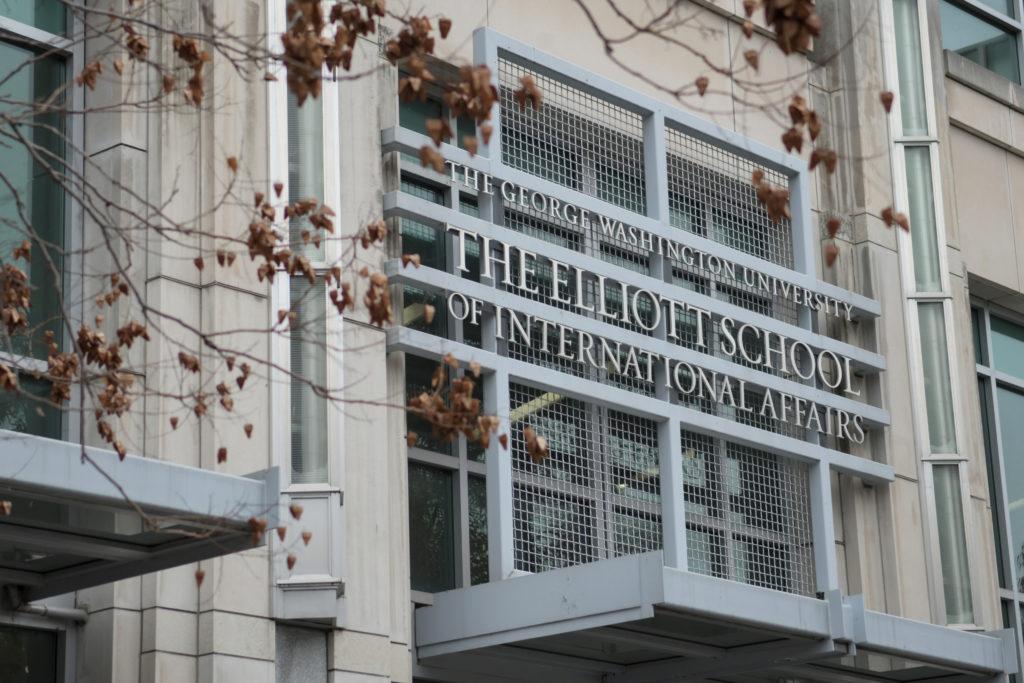Economics and human rights experts will host a conference on data in economic development at the Elliott School of International Affairs Friday.
The conference, organized in part by GW’s Digital Trade and Data Governance Hub and the Elliott School’s Institute for International Economic Policy, features three panels on topics like the effect data can have on economic growth and how countries can use data responsibly to govern. Event organizers said the conference will provide a platform for experts to discuss approaches to using data to bolster growth while protecting individuals’ privacy.
Susan Aaronson, the director of the Digital Trade and Data Governance Hub and a conference organizer, said data experts speaking at the conference will discuss how developing countries can use data to develop policies and track goals.
Aaronson said presenters at the conference will clear up misconceptions about how people can use data to improve the world – misconceptions like analogies comparing data to limited resources like oil.
“You hear these ridiculous expressions like ‘Data is the new oil,’ and it makes me want to scream,” Aaronson said. “Data is many different things and I would say it can’t be a resource that we’re running out of, like oil.”
She added that the conference will allow experts to discuss the growth of technology, like smart cities laden with sensors collecting information like building use and traffic patterns, and how that growth means private companies now have access to information that only the city may previously have had.
“That makes me uncomfortable, but you need to have good governance rules to ensure that the public is protected when companies own that kind of data,” she said.
The Center for Global Development, a think tank aimed at reducing global poverty and inequality, and the Heinrich Böll Foundation, a Berlin-based foundation working to support human rights, also helped organize the conference. The event is co-sponsored by the Center for International Business Education and Research and the Internet Society.
Vivien Foster, a World Bank chief economist, will kick off the conference with a presentation, and Claire Melamed, the CEO of the Global Partnership for Sustainable Development Data, a United Nations initiative, will give a keynote address.
Aaronson said more than 150 people have registered for the conference online, adding that the conference has primarily been promoted through the host organizations’ email lists.
Michael Pisa, a conference organizer and a policy fellow at the Center for Global Development, said the conference aims to bring together human rights and economic experts to seek a middle ground on using data as a tool for economic growth while safeguarding privacy. He said economic experts see data as an asset to evidence-based policymaking and tracking progress on economic goals, but human rights experts worry about the “liabilities” of using individuals’ data.
“I hope moving forward we can help develop a better understanding of how to use data responsibly, what the risks really are and what it means to use data responsibly,” he said. “I don’t think there is a consensus on that yet.”
Pisa added that he began discussing the conference with Aaronson last spring.
Sebastian Duwe, a conference organizer and a program director for infrastructure and development at the Heinrich Böll Foundation North America, said new technology has a “tremendous impact” on economies worldwide even though large and innovative tech companies tend to be concentrated in larger countries, like the U.S. and China.
“The digital economy is the future, for societies, for business, for governments,” he said in an email. “We are witnessing how it affects all parts of life. It also poses many new challenges, which require new rules and frameworks.”
He said conference organizers aim to connect digital policy experts with individuals working closely with trade and development issues through the event. He added that he hopes the connections created at the conference will prompt continuing discussions about the best approaches for using and regulating data.
“We hope that people can make connections between these communities and that they leave the conference with new ideas on how to approach these complex issues – and of course with lots of new business cards,” Duwe said.





